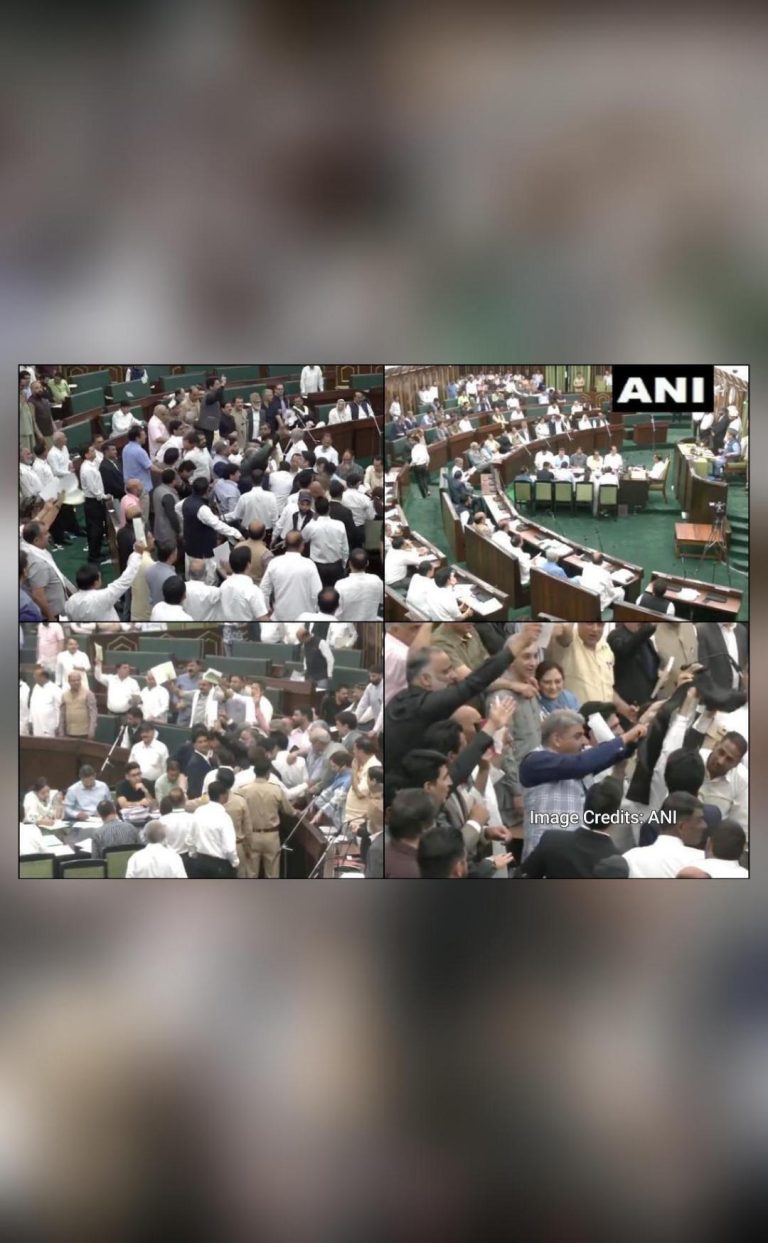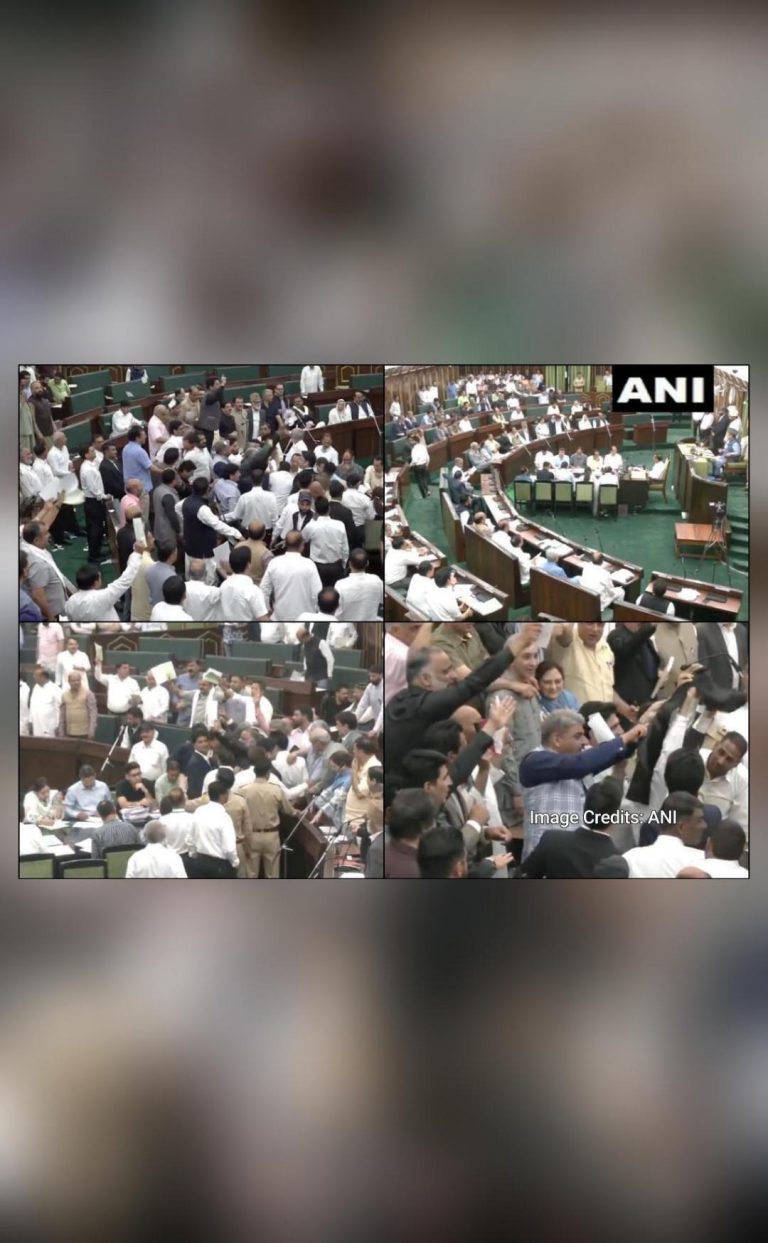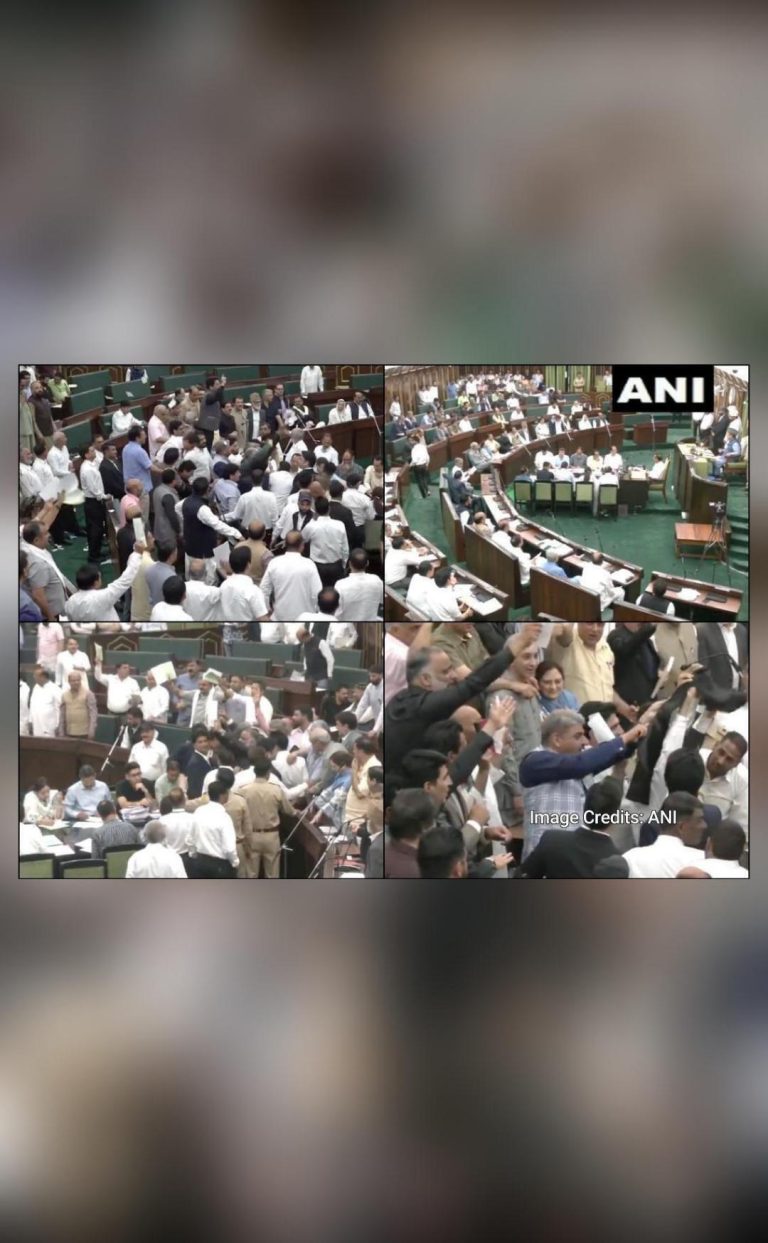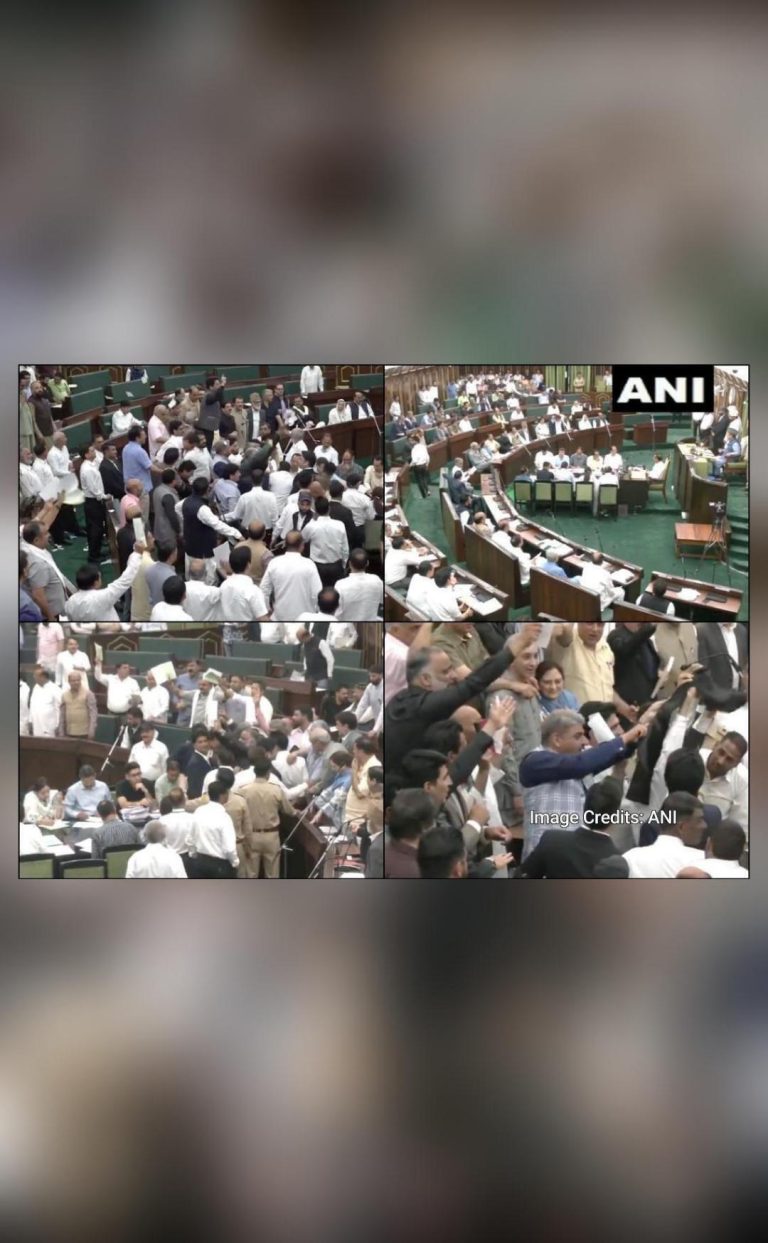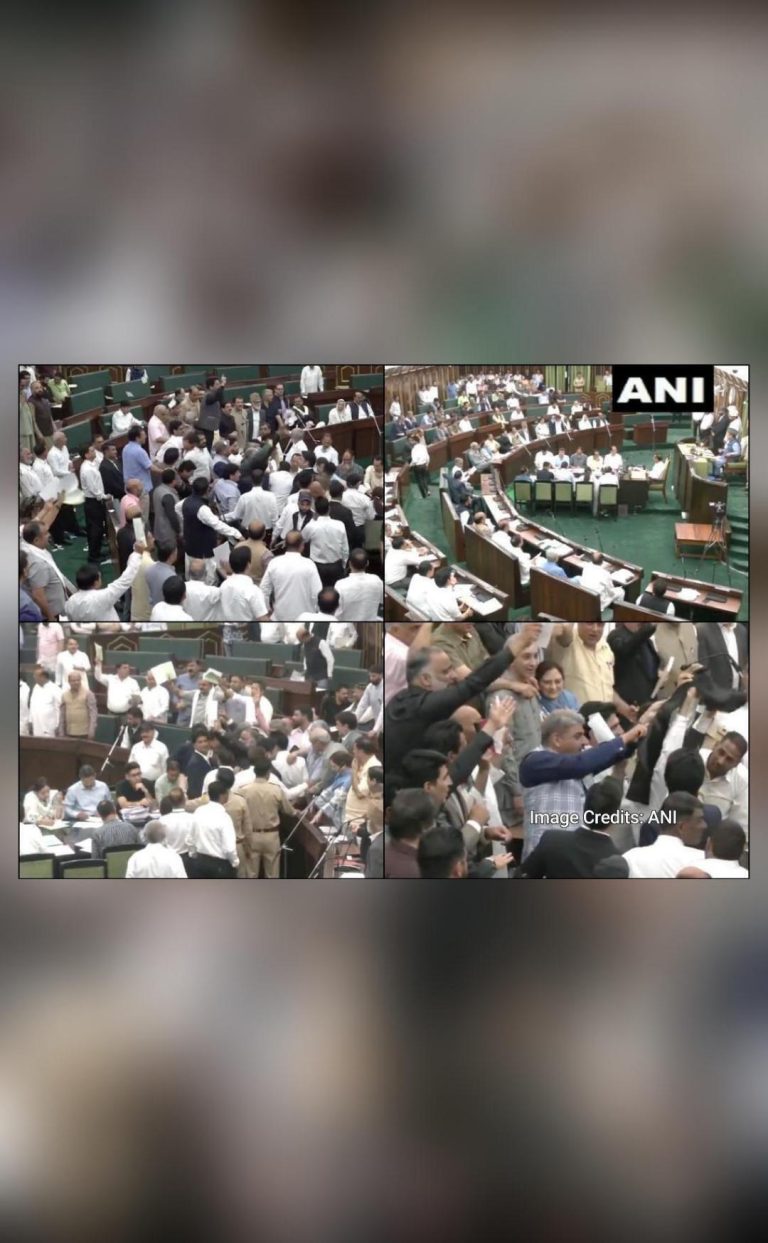
Jammu & Kashmir Assembly adjourned amid uproar over Waqf Act
The Jammu and Kashmir Assembly on Monday witnessed a massive uproar after Speaker Abdul Rahim Rather denied an adjournment motion on the Waqf Act, following which the House was adjourned. The adjournment motion was moved by National Conference (NC) MLAs to allow discussion on the Waqf Act, which has been a contentious issue in the state. However, the BJP also protested and demanded that the Question Hour be held, leading to the adjournment of the House.
The Waqf Act has been a subject of controversy in Jammu and Kashmir, with the government and opposition parties having different opinions on its implementation. The NC MLAs moved the adjournment motion to discuss the Act, which they claimed was being implemented in a biased manner and was detrimental to the interests of the people of Jammu and Kashmir.
The Speaker, however, refused to grant the adjournment motion, citing that the Question Hour was already occupied by other important discussions. This decision did not go down well with the NC MLAs, who protested and demanded that the Speaker reconsider his decision. The BJP MLAs also joined the protest, demanding that the Question Hour be held as scheduled.
The situation in the House quickly escalated, with both sides engaged in a heated debate. The NC MLAs accused the BJP of being biased and trying to suppress the voices of the people, while the BJP MLAs countered that the NC was trying to create a communal divide in the state.
The Speaker’s decision to deny the adjournment motion was seen as a major setback for the NC, which has been a strong opponent of the Waqf Act. The party has been claiming that the Act is aimed at promoting the interests of a particular community and is biased towards them. The NC has also been demanding that the Act be repealed, citing that it is unconstitutional and goes against the principles of secularism.
The BJP, on the other hand, has been supporting the Waqf Act and has been accusing the NC of being communal and trying to divide the people of Jammu and Kashmir on religious lines. The party has been claiming that the Act is aimed at promoting the welfare of all communities in the state and is not biased towards any particular community.
The adjournment of the House has raised questions about the effectiveness of the Legislative Assembly in addressing the concerns of the people of Jammu and Kashmir. The Assembly has been criticized for being ineffective in tackling the major issues facing the state, including the implementation of the Waqf Act.
The Waqf Act was passed in 2019, and since then, there have been several controversies surrounding its implementation. The Act was passed to regulate and manage the Waqf properties in the state, which are considered to be sacred and are managed by the Wakf Board. However, the Act has been criticized for being biased towards a particular community and for not being in line with the principles of secularism.
The controversy surrounding the Waqf Act has been a major issue in the state, with both the government and opposition parties having different opinions on its implementation. The NC has been leading the opposition to the Act, while the BJP has been supporting it.
The adjournment of the House has also raised questions about the role of the Speaker in the Assembly. The Speaker is responsible for maintaining order in the House and ensuring that the proceedings are conducted in a fair and transparent manner. However, in this case, the Speaker’s decision to deny the adjournment motion has been seen as biased and has led to a major uproar in the House.
In conclusion, the adjournment of the Jammu and Kashmir Assembly amid uproar over the Waqf Act has raised several questions about the effectiveness of the Legislative Assembly in addressing the concerns of the people of Jammu and Kashmir. The controversy surrounding the Waqf Act has been a major issue in the state, and it is essential that the government and opposition parties work together to find a solution that is beneficial to all communities in the state.
Source:
